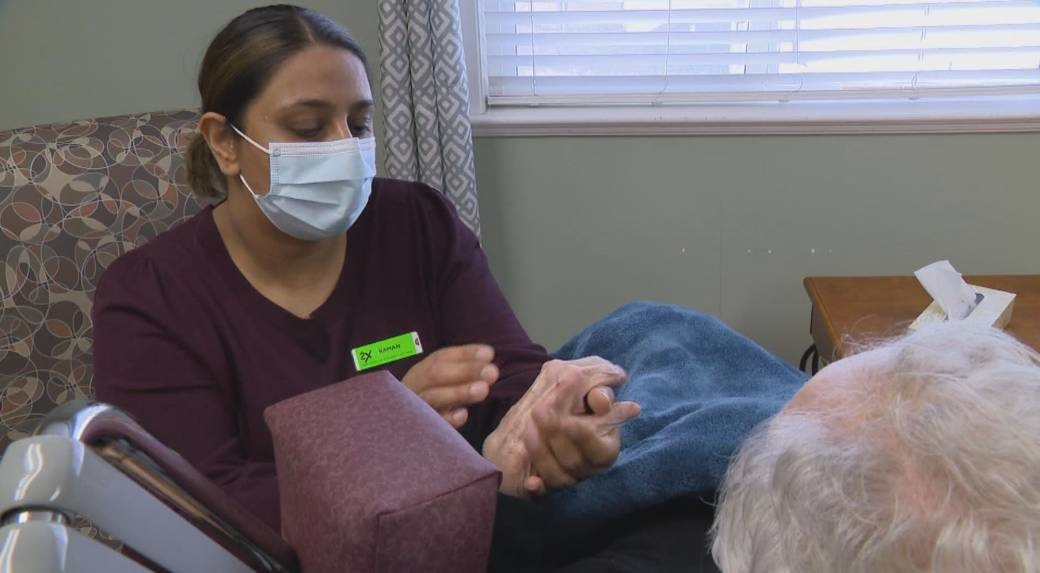The Saskatchewan government says it has grown the number of continuing care assistants (CCAs) in the province this fiscal year.

As part of the 2021-22 provincial budget, the government has provided $6 million in funding to hire an additional 108 full-time equivalent continuing care assistant positions.
Ninety of those positions are for long-term care facilities and 18 will support home care.
About 94 per cent, or 101 of the 108, of the budgeted CCA positions have been filled, the government shared in a release on Monday.

Get breaking National news
“Continuing care assistants play a crucial role in our health care system,” stated Mental Health and Addictions, Seniors and Rural and Remote Health Minister Everett Hindley. “By following through on our promise to hire more CCAs, our government is strengthening long-term care and home care services for Saskatchewan people in communities across the province.”
The government added that the Saskatchewan Health Authority (SHA) has hired the equivalent of 85 full-time CCAs as recruitment efforts continue for the five remaining positions for long-term care.
Sixteen full-time CCAs have also been hired by the SHA to work in rural home care. The SHA is working to recruit an additional two FTEs for this sector.
The initial $6-million investment will create additional direct care support in 43 long-term care homes. These new positions will staff 22 smaller cities, towns, northern communities and their surrounding rural areas.
- Danielle Smith promises Alberta referendum over immigration, Constitution changes
- Real Canadian Superstore fined for ‘misleading’ Product of Canada displays
- ‘No reason to continue discussing’: Ontario mayor wants Andrew’s name dropped
- Canadian Tire says Triangle Rewards are its ‘linchpin’ for growth







.jpg?h=article-hero-560-keepratio&w=article-hero-small-keepratio&crop=1&quality=70&strip=all)
Comments
Want to discuss? Please read our Commenting Policy first.